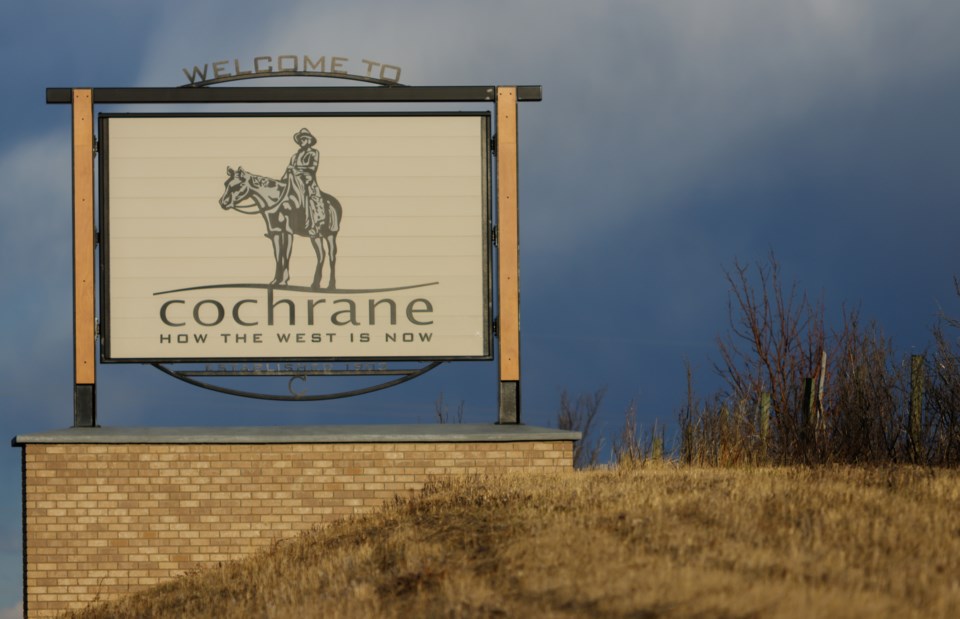COCHRANE— At the Cochrane Council meeting on Monday (Jan. 11) a delegation appeared before Council to implore the Town to exit the Calgary Metropolitan Region Board.
Cochranite Ron Voss appeared before Council to voice his concerns regarding the Town's position on the regional board and requested the organization take steps to leave.
The Calgary Metropolitan Region Board was created under the provincial government in 2018, under the NDP. The Municipal Government Act, which serves as the parent legislation to the Calgary Metropolitan Region Board, mandates that all municipalities in the area must participate and create a regional plan for managed and sustainable growth by Dec. 31, 2020. An extension was later granted allowing the Calgary Metropolitan Region Board to submit the growth plan to the province in March 2021.
The provincial decree mandates neighbouring municipalities must work together on regional development, because of this Cochrane is unable to opt out of the board.
A draft of the Calgary Metropolitan Region Board growth plan will be shared with Cochrane before its submission to the provincial government to share its potential impact with the community.
The board includes Calgary, Cochrane, Rocky View County, Airdrie, Chestermere, Foothills County, High River, Okotoks, Strathmore and Wheatland County. At least six participants need to vote in favour of a motion for it to move forward.
“In my opinion, the board has done great work— We’ve learned to work together as a region. If anything, one of the positives of it has been interactions with our neighbours,” said Mayor Jeff Genung. “The Regional Board at this point, I can assure you, has not been influenced by one municipality over another.”
Voss said one of his major questions surrounding the board is why a 25 per cent reduction of carbon emissions from residential buildings, 15 per cent reduction of wastewater, 15 per cent reduction in greenhouse gas emissions from vehicles travelling, 35 per cent reduction on the amount and cost of new infrastructure and 40 per cent reduction in land consumption was included in the growth plan.
Voss said climate action is a key component of the United Nations Agenda for 2030 and the Paris Climate Accord.
“The growth plan comes across as a blueprint to move toward the sustainable development goals of the globalist United Nations,” Voss told Council. He noted the plan is also potentially being guided by the Great Reset proposed by the World Economic Forum.
He added in his opinion Calgary’s “progressive” Mayor Naheed Nenshi and City Council have had an overwhelming influence on the growth plan.
He noted there is an imperative to find out how the people of Cochrane feel being “dominated” by the United Nations and called the Boards public engagement with 0.1 per cent of the population, approximately 1,600 people, during the creation of the growth plan “pathetic.”
“Therefore, my recommendation is Cochrane ... take the steps to exit the Calgary Metropolitan Regional Board and the influence of a corrupt, dysfunctional United Nations through the influence of the City of Calgary,” Voss said.
He added his presentation represents the view of his group, Dog With a Bone Society, whose mission, “is to provide a counter-narrative to the government-subsidized mainstream media and expose the influence of the corrupt dysfunctional United Nations.”
Genung said the discussions with the board have not been centred on climate change and there is no agenda to reduce energy or to negatively impact the economy.
“In fact, we’re looking at ways to help each other in building our economy as a province,” Genung said.
Councillor Alex Reed noted the board is mandated by the province and Cochrane does not have the choice to exit.
He added regional planning is critically important for the municipalities as it can help for better utilization of water, sewage, recreation, land use and other critical components the board is trying to guide.
Coun. Marni Fedeyko encouraged Voss to share his presentation with other municipalities involved with the Calgary Metropolitan Region Board. She noted it is difficult to step out and not move forward with the board when other municipalities are involved.
“If you’re really passionate about it, it might be worthwhile to poke around and see what other communities are out there who might have the same similar types of concerns,” she said.
Coun. Tara McFadden said it was important to bring alternative views to the table to generate discussions and suggested Voss share his presentation with Airdrie-Cochrane MLA Peter Guthrie.
McFadden said in her experience sitting on the board it is a “consensus-building body” searching for the best way to use resources in Southern Alberta to the benefit of everyone. She cited the importance of water and communities coming together to find the best use for the resource for the good of everyone.
“From my experience on it it’s been very collaborative and the decision-making to this point has been very much consensus-building,” McFadden said.




